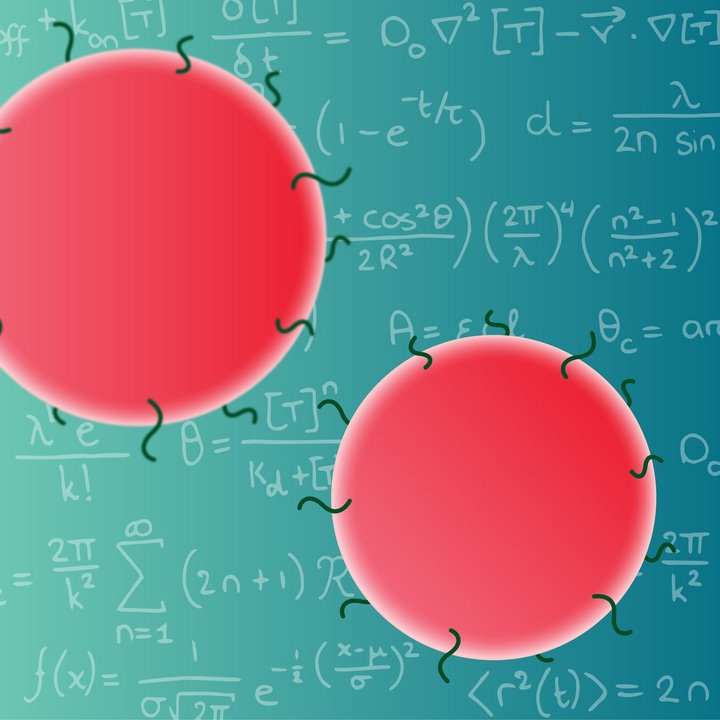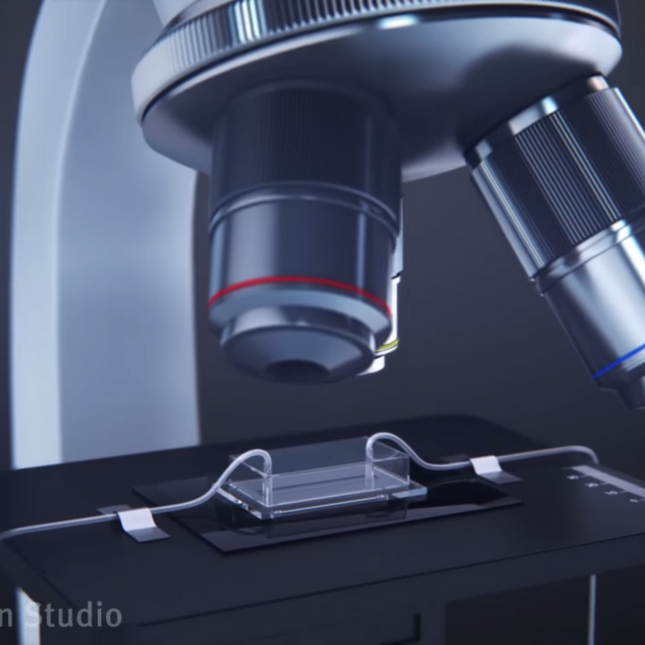Quantify molecular processes with single molecule resolution
The MBx group creates concepts in the field of molecular biosensing with diagnostic and therapeutic healthcare perspectives. Combining nanotechnology, molecular engineering and single molecule imaging technologies we aim to measure with ultimate sensitivity biomolecules implicated in a variety of diseases, such as cancer, immunology, and cardiology.
Read moreResearch Areas
Work with us!
Building a better future for our global society? Join our research team and be part of the thriving community at Eindhoven University of Technology.
Working at the department of Biomedical Engineering or Applied Physics
We are continuously looking for enthusiastic and motivated students and postdocs. If you would like to work in a great environment at TU/e, please contact one of the staff members for more information.
Meet some of our Researchers
Recent Publications
Our most recent peer reviewed publications
-
Minpeng Liang,Thomas Delplace,Bjorn Maes,Shunsuke Murai,Peter Zijlstra,Jaime Gómez Rivas
Refractive index sensing using quasi-bound states in the continuum in silicon metasurfaces
Optics Express (2024) -
Anjana Sathyan,Emmanouil Archontakis,A.J.H. Spiering,Lorenzo Albertazzi,Anja R.A. Palmans
Effect of Particle Heterogeneity in Catalytic Copper-Containing Single-Chain Polymeric Nanoparticles Revealed by Single-Particle Kinetics
Molecules (2024) -
Arthur L. Hendriks,Mathias Dolci,Mildred S. Cano-Velázquez,Luca Picelli,Peter Zijlstra,Ewold Verhagen,Andrea Fiore
Detecting single nanoparticles using fiber-tip nanophotonics
Optica (2024) -
Anjana Sathyan,Emmanouil Archontakis,A. J.H. Spiering,Lorenzo Albertazzi,Anja R.A. Palmans
Effect of Particle Heterogeneity in Catalytic Copper-Containing Single-Chain Polymeric Nanoparticles Revealed by Single-Particle Kinetics
Molecules (2024) -
Alissa D. Buskermolen,Claire M.S. Michielsen,Arthur M. de Jong,Menno W.J. Prins
Towards continuous monitoring of TNF-α at picomolar concentrations using biosensing by particle motion
Biosensors and Bioelectronics (2024)
News
![[Translate to English:] [Translate to English:]](https://assets.w3.tue.nl/w/fileadmin/_processed_/6/1/csm_Nooteboom%20Banner%20image_f883403145.jpg)





Education
Check out all our courses
The research group Molecular Biosensing for Medical Diagnostics provides courses and projects in the bachelor's and master's programs of the departments of Biomedical Engineering and Applied Physics. Furthermore, we offer a broad range of projects for students to work on in the research group.
PhD Theses
Video on Plasmonic Biosensing using Metal Nanoparticles
Metal nanoparticles provide the possibility to detect single molecules without the need for labeling, enabling the direct detection of non-absorbing species [1]. A molecule that binds to receptors on the surface of a particle induces a change in the local refractive index that in turn results in a change of color due to a shift of the plasmon resonance [2,3]. This animation illustrates the real-time detection of plasmon shifts induced by molecules binding to functionalized single gold nanorods. The plasmon shifts are measured by monitoring scattering intensities of many particles simultaneously and in real-time [4].
Contact
-
Visiting address
FluxGroene Loper 195612 AE EindhovenNetherlands -
Postal address
Department of Biomedical Engineering & Department of Applied PhysicsP.O.Box 5135600 MB EindhovenNetherlands -
Secretary







![[Translate to English:] [Translate to English:]](https://assets.w3.tue.nl/w/fileadmin/_processed_/8/6/csm_CBL_Toolkit_Demo_Lunches_1786070852.jpg)
![[Translate to English:] [Translate to English:]](https://assets.w3.tue.nl/w/fileadmin/_processed_/8/3/csm_BvOF%202023_0615_DIW%20-%20National%20CBL%20Conference%20-%20fieldtrip%20Innovation%20Space_f59d52bf6f.jpg)

![[Translate to English:] [Translate to English:]](https://assets.w3.tue.nl/w/fileadmin/_processed_/8/2/csm_2024_05_14_Innovatiedebat_iStock-480985277_small_199bfc42e0.jpg)
